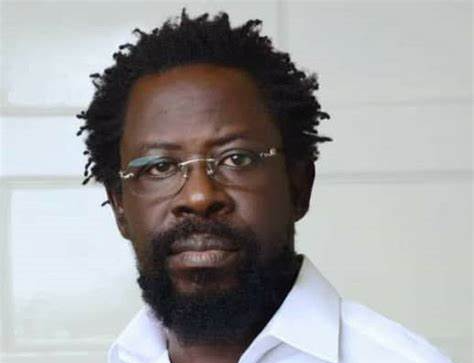Prominent Lagos lawyer and human rights activist, Dele Farotimi, appeared before the Chief Magistrate Court in Ado-Ekiti, Ekiti State, on Tuesday for a bail hearing.
Farotimi, who arrived at the court in a police security van at approximately 10a.m. was accompanied by officials from the correctional centre.
The legal teams for both the defence and the plaintiff were present in court ahead of Farotimi’s arrival.
The case followed a defamation lawsuit filed by 95-year-old legal luminary, Chief Afe Babalola (SAN) against Farotimi where the former is alleging defamatory statements in Farotimi’s book, ‘Nigeria and Its Criminal Justice System.’
LEADERSHIP recalls that Farotimi was arrested in Lagos on Tuesday, December 3 following a petition by Babalola leading to his subsequent arraignment at the Magistrate Court in Ekiti last Wednesday.
Magistrate Abayomi Adeosun had ordered Farotimi’s remand in the correctional facility and scheduled December 10, 2024, for a bail hearing.
At proceedings on Monday, Farotimi was granted bail under stringent conditions with a sum of ₦50 million, a surety of equal value residing in Ekiti State, and the submission of his travel passport to the court. The surety must also own landed property within the state.
The case drew widespread criticism from civil society organisations and legal practitioners.
The Nigerian Bar Association (NBA) condemned the arrest, describing it as “a brazen assault on freedom of expression.”
The situation also ignited public outrage, with critics labeling the action as a suppression of dissent.
Human rights activist former presidential candidate, Omoyele Sowore, announced plans for nationwide protests to demand Farotimi’s release.
Sowore called for demonstrations in Ekiti, Lagos, Abuja, and even at King’s College, London, scheduled for December 10, 2024.
However, as of this morning, there was no evidence of protests in Ado-Ekiti, the Ekiti State capital.
Farotimi’s supporters continued to decry the charges as politically motivated.
In a statement, one critic noted, “This case sets a dangerous precedent for freedom of speech in Nigeria. Defamation charges should not be used as a tool to silence dissenting voices.”

